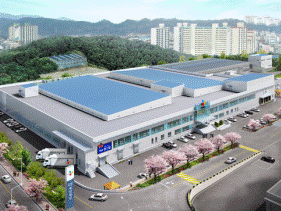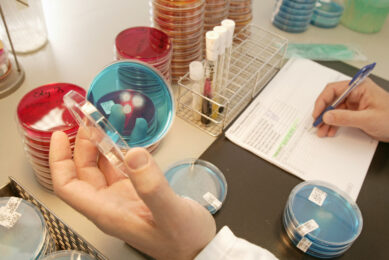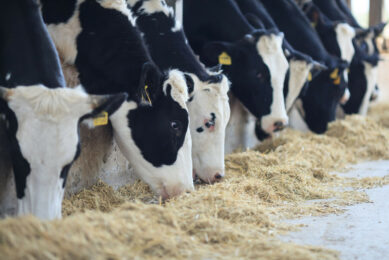CJ launches world’s first antibiotic replacement

CheilJedang Corporation has developed a new kind of antibiotic-replacement for use in poultry feed, allowing it to get a grip on the growing global market demand for safe antibiotic alternatives.
The country’s largest food-processing company, aiming to grow into a global food and biotechnology firm, said its latest product, Biotector, is the world’s first bacteriophage product used as a feed additive to fight harmful bacteria like Salmonella gallinarum and Salmonella pullorum, which cause typhoid and other diseases in fowl.
"We have developed the world’s first antibiotic replacement that is safe for both fowl and human consumption," chief executive Kim Jin-soo told reporters at a news conference.
The CEO said the new product is the result of research conducted since 2006 on an investment of 5 billion won ($4.4 million). The company has set 1.3 billion won ($1.14m) as its sales target for 2010 and 240 billion won ($211m) for 2015.
South Korea will likely adopt regulations to ban the use of antibiotics for livestock believed to be harmful to human health in 2012.
Cost competitive product
Kim said CJ’s antibiotic replacement is cost-competitive, assuring that Korean farmers will not feel a sudden cost burden. This would mean that local consumers also do not have to worry about a surge in poultry products.
Kim Jin-dong, the team leader of CJ’s Animal Nutrition and Health department, noted that the current alternatives to antibiotics have been acidifiers, probiotics, enzymes, and prebiotics.
"The controversy surrounding antibiotics is that they weaken the resistance of animals to various diseases, while raising questions over their safety for human consumption," the animal nutritionist said on the sidelines of the news conference.
International expansion
CJ’s Biotector has made its debut in the home market and India. Next year, the company plans to expand to Brazil and China.
Capturing the global market is expected to take time due to the examination and approval period required by each of CJ’s targeted countries.
"We expect to enter the EU region in 2016, because it is expected to take up to seven years to go through the approval process," Kim Jin-dong said, noting that CJ began the entry process last year.
The entry and approval process is also estimated to cost about 7 million euros ($9.5 million), he added.
Source: Korea Herald
Related website: Cheil Jedang CJ











